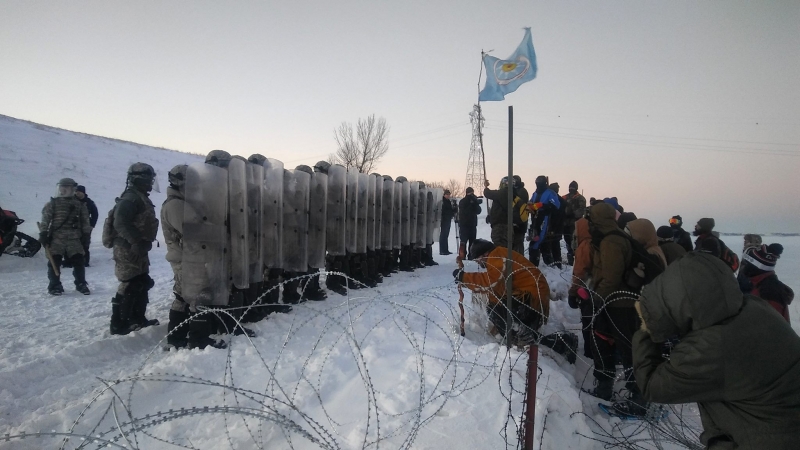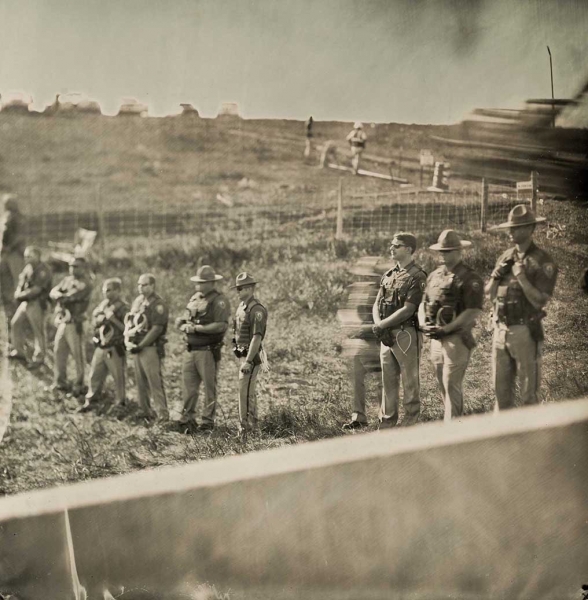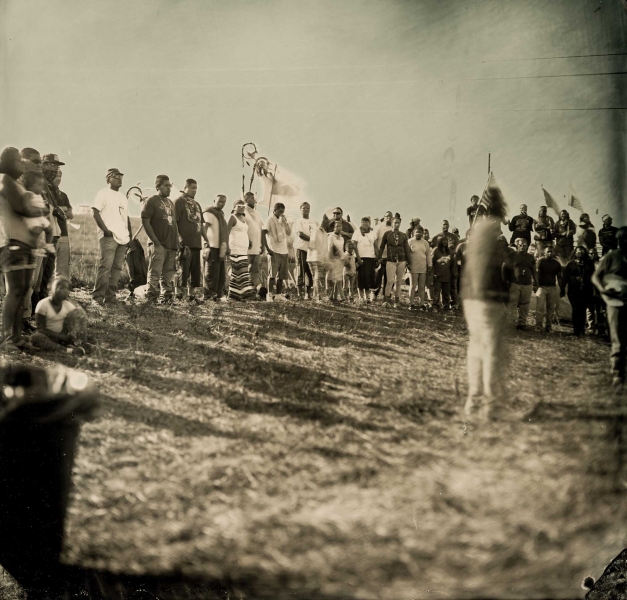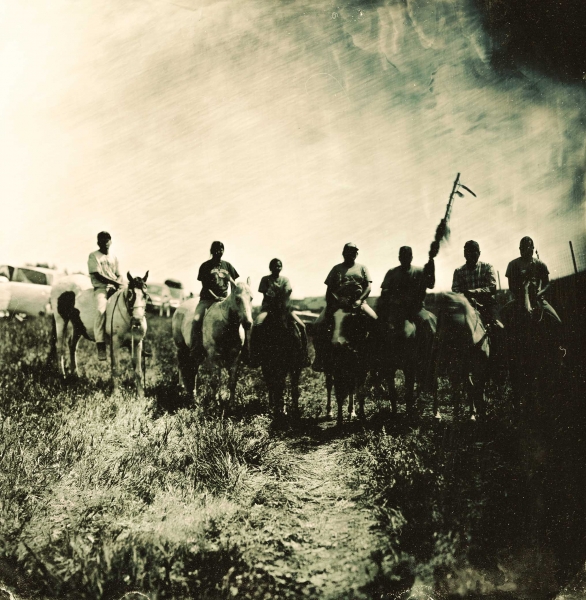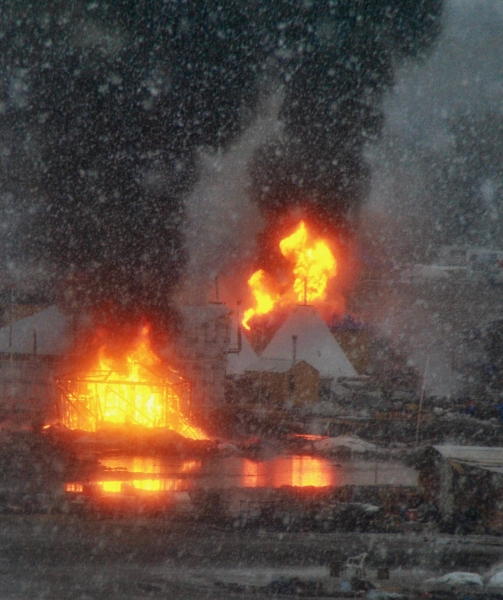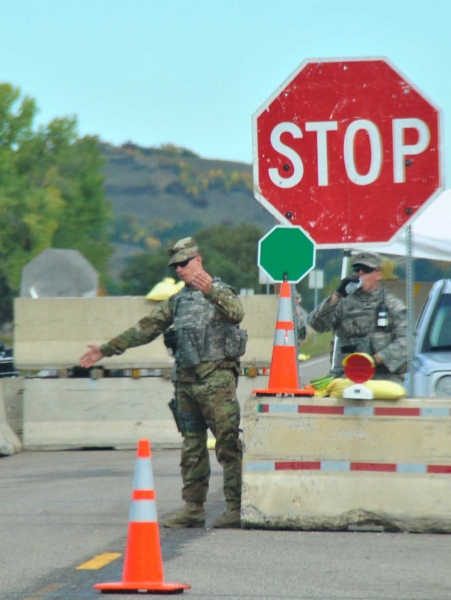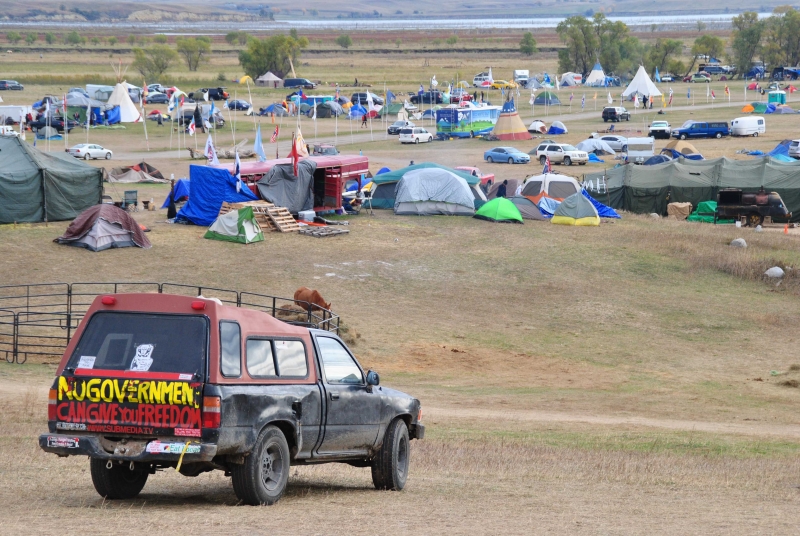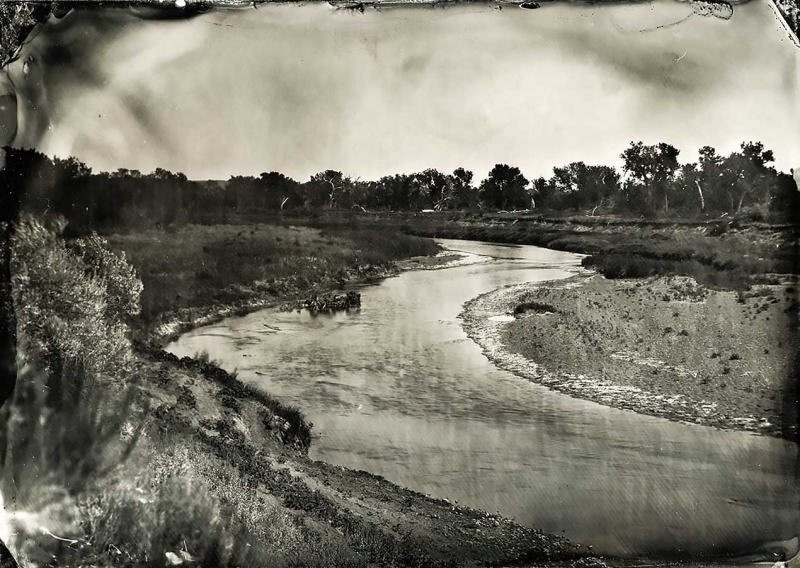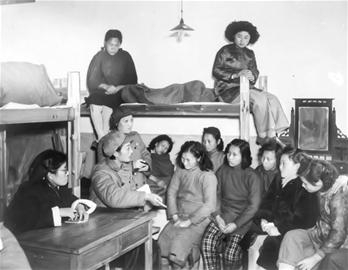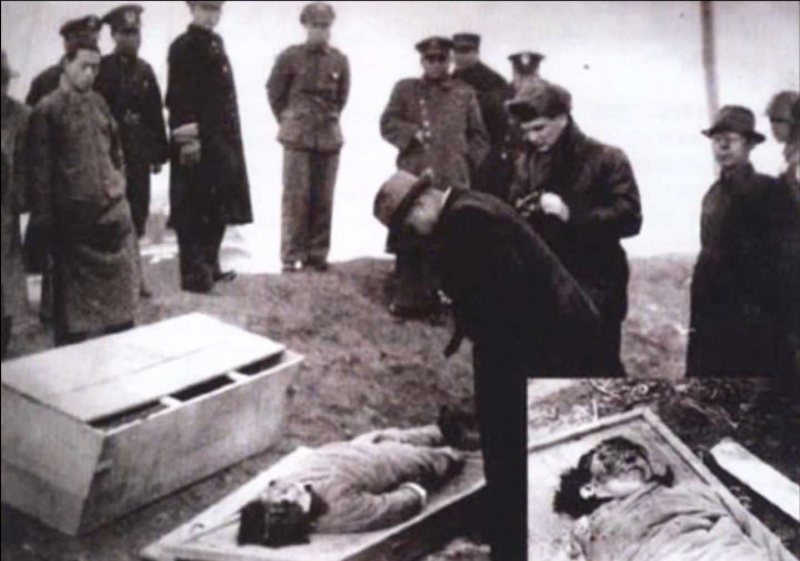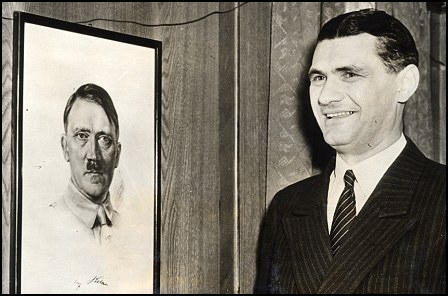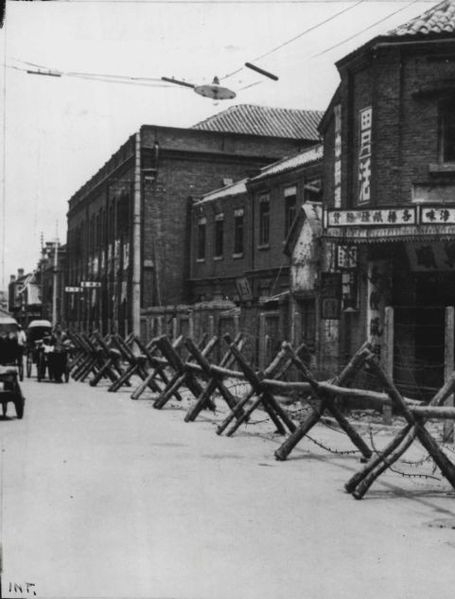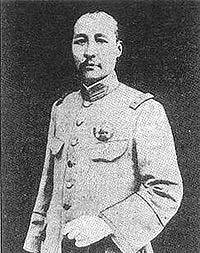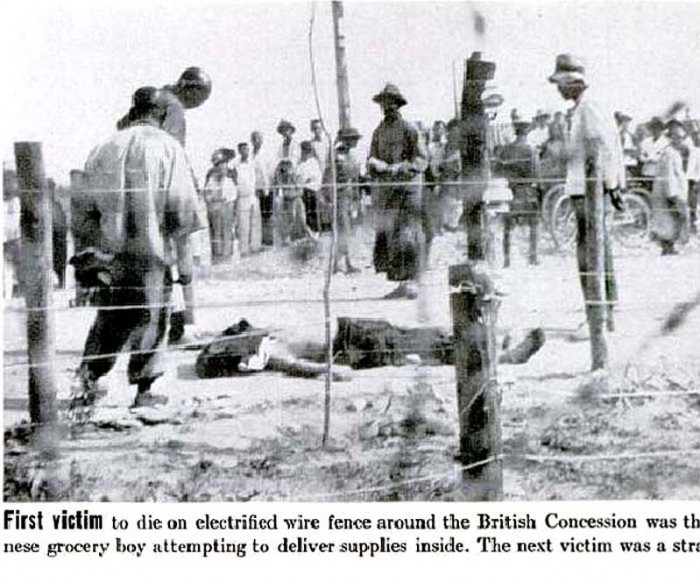The partnership between state law enforcement and private security firm TigerSwan begins
By C.S. Hagen
FARGO – Internal documents obtained by the High Plains Reader from the Cass County Sheriff’s Department reveal a disturbing familiarity between state police chiefs and sheriffs with TigerSwan’s analysts and upper echelon.
In early September 2016, oil magnates, private security personnel, and law enforcement cooperated in creating a “rhythm” for moving the Dakota Access Pipeline forward – together.
Four days after security dogs were brought to the front line on September 3, 2016, TigerSwan’s first situation report, on September 7, 2016, made public by The Intercept, stated the private security firm’s initial intentions: to create a clear SOW, or scope of work, to empower a PAO, or strategic command public affairs officer to tell the world that “we [DAPL] are the good guys,” and establish rules for the “Use of Force” for all security elements involved.
“Giddy up”
TigerSwan, a security firm with an extensive background in counterterrorism operations in the Middle East, worked quickly. The day of the attack dogs had attracted too much criticism from media outlets around the world, which echoed 1960s civil rights abuses in Birmingham, Alabama. The elusive security firm had much ground to cover and an agenda to solidify: protect the Dakota Access Pipeline (DAPL).
By September 10, 2016, Michael Futch, manager of the Dakota Access Pipeline construction project, currently working with Energy Transfer Partners, began contacting sheriffs around the state, including Mercer County Sheriff Dean Danzeisen, in emails entitled “Operations Planning.”
The plan was moving forward, according to an email forwarded by Danzeisen. On September 12, 2016, another TigerSwan situation report stated that the firm had met with Danzeisen, and had agreed to the “sharing of information.”
“Tomorrow evening you are authorized to release Precision to continue working towards Highway 6 just south of St. Anthony under three conditions,” TigerSwan’s Gary Winkler wrote to Danzeisen later that same day.
Winkler’s conditions in the email stipulated police needed to share written information and scatter sheets with Sweeney on a daily basis. “We need them every evening to plan the next day’s kickoff (starting tonight).
“Using those plans, Shawn Sweeney is able to communicate effectively and timely with law enforcement on a daily and hourly basis. We will avoid any confrontations with protestors, and no dogs are to be used.
Danzeisen, using a private Gmail account, forwarded the demands on to sheriffs and one police chief:
- Williams County Sheriff Scott Busching, who oversaw county law through the Bakken’s most recent oil boom, resigned his post in April 2017 after 18 years.
- McKenzie County Sheriff Gary Schwartzenberger, colloquially known as the “terrorist sheriff,” who was suspended from office due to “misconduct, malfeasance, crime in office, neglect of duty or gross incompetence,” along with harassment and intimidation for fostering a “quasi-military environment.” North Dakota Governor Doug Burgum reinstated Schwartzenberger in August 2017, which sparked controversy. Six officers of the McKenzie County Sheriff’s Department left, three in one day, and another officer was fired, according to media reports.
- Cass County Sheriff Paul Laney, a former Marine who ran point on the ground during much of the Dakota Access Pipeline controversy. Laney, president of the North Dakota Sheriffs and Deputies Association, also serves on the board of directors for the North Dakota Association of Counties. He is currently in his third term as an elected peacekeeper, but decided recently that he will not run again.
- Morton County Sheriff Kyle Kirchmeier, who was the head of law enforcement operations during the Dakota Access Pipeline, coordinated hundreds of law enforcement officials from dozens of agencies across the United States.
- Stutsman County Sheriff Chad Kaiser feared for his life when he claimed the helicopter he was in was attacked by arrows and buzzed by a drone, according to media reports.
- Mandan Police Chief Jason Ziegler, a former Marine who served in the Gulf War, became Mandan’s police chief in 2015.
Danzeisen is the author of an October 2016 letter to U.S. Attorney General Loretta Lynch and others, claiming Standing Rock activists were armed, hostile, and engaging in training exercises for conducting violence.
“Fall to pieces”
The morning of September 14, 2016 started off with a picture from TigerSwan’s senior vice president, Shawn Sweeney, to Danzeisen. It was a photograph of a Native American holding a drum in one hand and speaking into a handheld radio with the other. The picture was taken at 8:58am, and was sent to Danzeisen seven minutes later through Sweeney’s smartphone, according to email time logs.
The fusion between TigerSwan and local law enforcement agencies began before September 12, 2017, according to TigerSwan’s internal situation reports. The timing is confirmed by an email entitled “Protesters in your county,” from Laney on September 14, 2016, to sheriffs involved in the controversy.
“Hello gents,” the email began. “I was asked by DAPL security to drop you a quick line to let you know that earlier today their security personnel in each of your counties were approached by people who identified themselves as protesters of the pipeline, and they wanted to know where they could find the pipeline in your counties.”
DAPL security in North Dakota included companies such as Leighton Security Services, LLC, established in 2011 in Honey Grove, Texas, and 10 Code Security, established in 2010 in Bismarck, and TigerSwan, hired by Energy Transfer Partners as the “fusion leader.”
“The protesters that have been doing this aren’t the typical protesters on Standing Rock,” Laney’s email continued. “These protesters, while having some natives mixed in with them, are mostly white hippies. They are the more radical of the groups here and have been the ones attaching themselves to equipment.
“I was told that DAPL security in your area was going to reach out to you directly, but I wanted to give you a heads up in advance.”
From the onset, one goal of TigerSwan was to create dissension within the camps. TigerSwan analysts described a sense of urgency in attempting to obtain information, which was at best difficult, a September 22, 2016 informational report stated.
“As the protester security gains additional knowledge of security tactics and operations, the ability to gather information about planned protests will diminish,” the summary portion of the report stated. “Information control within the camp, despite causing dissension, makes any internal-source information difficult to acquire.”
TigerSwan personnel have years of experience working in counter-terrorism in MENA, or the Middle East and North Africa, West Africa, and other places, according to its website, and the arrival of a small group of Palestinians at the camps disturbed the security firm’s analysts.
“Furthermore, the presence of additional Palestinians in the camp, and the movement’s involvement with Islamic individuals is a dynamic that requires further examination. Currently there is no information to suggest terrorist-type tactics or operations; however, with the current limitation on information flow out of the camp, it cannot be ruled out.”
The cooperation extended beyond DAPL security and law enforcement, according to an email from Michael Futch. Instructions at times originated from Energy Transfer Partners and were sent to TigerSwan personnel, which were then forwarded to law enforcement.
Futch spoke for Energy Transfer Partners in an email on September 14, 2016. In the email, he rained praise on Billy Lambeth, construction manager for “Spread 09,” the pipeline route near Williston, and warned law enforcement of upcoming threats.
“Protesters are organizing right now based on what intel Billy has picked up,” Futch wrote in the email entitled “Security in Spread 09.” “Right now he has a security lead on site, and as far as I know we do not have a risk assessment from security and with today’s intel we are now in a rapid response mode.”
Futch continued the email, saying that so far, Spread 09 had been lucky, flying “under the radar,” but Lambeth needed assistance.
“Now that we see a threat, I’m requesting that you make an attempt to work directly with Billy to make sure that safety of workers and continuity of work can be maintained,” Futch wrote. “Billy has a wealth of experience working in dangerous environments, both domestic and international.”
Futch made two requests of law enforcement: first, that threats identified by DAPL security be communicated through Lambeth’s chain of command, and second, to know locations of all law enforcement and security and develop a plan for handling protest activity and evacuation.
Roads needed closing as well, Futch wrote, an idea he mentioned 40 days before Highway 1806 was shut down by law enforcement.
Under a different email group entitled “Operations Planning,” Futch wrote to Danzeisen, carbon copying Leighton Security Services, TigerSwan personnel, and another DAPL construction manager, asking for police escorts for “unusual loading needs.”
Danzeisen acknowledged 50 minutes after Futch’s email was sent, saying the QRT, or Quick Response Team leader, and himself, needed to be present in order to coordinate staffing and give the “tribe notice so we don’t have a repeat of interference by protester groups.”
Futch agreed. “Make sure to write it up in an email and I will forward to law enforcement and to Precision management to reinforce the expectation. One of the reasons I chose Tuesday. No last minute changes until we are all together.”
“Mike, it is imperative upon the development of the plan that Rick and PPL follow the plan,” Danzeisen responded. “Otherwise it will fall to pieces.”
Precision Pipeline, LLC, or PPL, is a company headquartered in Wisconsin, and was one of the companies awarded contracts to lay pipe by Dakota Access Pipeline, LLC, according to the Pipeline & Gas Journal.

Police gather for a photo opp before a roadblock setup by activists, reports differ on who set the debris on fire – photo provided by online sources
Hit lists
Activists fighting the Dakota Access Pipeline – also known as water protectors – had hit lists, and doxxed police officers, officials report.
The North Dakota State and Local Intelligence Center, or NDSLIC, reported 10 incidents of surveillance tactics used against law enforcement officials from August 21, 2016 until September 4, 2016.
On September 29, 2016, a surveyor on DAPL Spread 6 named Luther Body was also threatened through Facebook messaging services, according to an email sent to Energy Transfer Partners by Dan Junk, of Wood Group Mustang, an energy engineering company in Canada, and then forwarded to authorities.
Law enforcement also made their own list entitled “Groups of Interest.”
Early intelligence was based primarily on Morton County tips from social media, and sighting of individuals of interest including libertarian Nathan Seim, Gabriel Black Elk, and Winona LaDuke, according to an unclassified report compiled by the NDSLIC.
The NDSLIC is the states government’s eyes and mouthpiece, whose mandate is to gather, store, analyze, and disseminate information on crimes, both real and suspected, to law enforcement, government, the community, and private industry regarding drugs, fraud, organized crime, terrorism, and other criminal activity.
The NDSLIC listed media outlet Unicorn Riot, in top place, Native Lives Matter, United Urban Warrior Society, Urban Native Era, Gavin Seim for Liberty, American Indian Movement, Rez Riders, Indigenous Environmental Network. Analysts pointed out Winona LaDuke, founder of Honor the Earth, and Gabriel Black Elk of Native Lives Matter, among others.
“NLM is very similar to Black Lives Matter,” the NDSLIC report stated. “They are often seen mixed in at Black Lives Matter events. NLM is many times more vocal about violence by law enforcement on social media… Many of the issues that NLM focus on pertain to custody deaths and police use of force up to deadly force on Natives.”
LaDuke, an environmentalist, economist, and writer, who ran for Vice President of the United States as the Green Party candidate, stood in the NDSLIC’s crosshairs because she was well known and frequently addressed the needs of the Native environmental movement, desiring to break up the geographical and political isolation of Native communities, and to increase their financial resources.
The NDSLIC also listed Canada’s Idle No More, and the Nation of Islam, under “Groups of Interest.”
“Critical infrastructure” needing protection in the state included the Northern Border Natural Gas Pipeline, which runs adjacent to the Dakota Access Pipeline, the Basin Electric transmission line, North Dakota Highway 1806, Cannon Ball River Bridge, or Backwater Bridge, and the South Central Regional Water District Intake and Treatment Plant.
Law enforcement echoed Energy Transfer Partners’ intent to block off Highway 1806, declaring it a vital access to the “flow of commerce and emergency responders to and from Standing Rock Indian Reservation.
“There is potential for barricades to be setup on or near the bridges to prevent travel of either law enforcement/emergency responders (by protestors) or protesters (by law enforcement),” analysts reported.

Well armed police prepare to clear an area – photo provided by North Dakota Joint Information Center
FW: ***URGENT PRIORITY: Threat of Upcoming Violence this Weekend***
On September 29, 2016, at 11:59am, TigerSwan issued an “urgent priority” report claiming upcoming violence for the following weekend. The threat assessment came from Ashley L. Parsons, a former analyst in TigerSwan’s Houston office, and was sent to TigerSwan personnel in North Dakota, including Kyle Thompson, according to emails.
Thompson is the former Leighton Security Services employee who was carrying an AR-15 automatic assault rifle, the kind used in most mass murders, and was disarmed by activists after reportedly driving a pickup truck at high speed toward the main camp on October 27, 2016, the day the North Treaty Camp was overrun by law enforcement.
Ashley Parsons, the former TigerSwan analyst, switched jobs in April 2017, and began working for National Oilwell Varco, Primerica, according to her LinkedIn profile. She reported seven years active duty military experience in various fields including providing intelligence to private industry, global security, and the oil and gas industries, according to her LinkedIn profile. She has functional knowledge of crisis management and response, counterterrorism, counterintelligence, and strategies to counter a “broad range of threats.”
Parsons also self-reported she has active Top Secret/Sensitive Compartmented Information clearance.
Sweeney sent Parsons’ information to Danzeisen, who forwarded the email to the group of sheriffs. From there, the scare gained credence; the digital trail led to Lynn Woodall, a captain in the Morton County Sheriff’s Department.
“DAPL Security Intel has passed along the following information,” Woodall wrote to 28 recipients.
The next morning at 7:19, Morton County’s Emergency Manager Tom Doering forwarded the same information to 116 others involved in law enforcement, and game wardens, postal service agents, the Federal Bureau of Investigation, the Bureau of Criminal Investigation, NDSU police, U.S. Attorney’s Office National Security Intelligence Specialist Terry Van Horn, and other organizations in North and South Dakotas, and Montana.
“Team,” Woodall wrote. The rest of the email was the same content as TigerSwan’s original email. “We have just received information concerning violent protesting that will occur this weekend against DAPL employees. This information was conveyed to us as an imminent threat. Source did not authorize disclosure of identity. Please push this out as urgent to your external networks, i.e. FBI, Homeland Security, even friends of those networks, etc. and really anyone else you feel would be instrumental for rapid-fire collections.”
Sixteen days before the threat assessment was disseminated, Morton County reported 60 activists, including former Standing Rock Sioux Chairman Dave Archambault, had been arrested. By October 13, the numbers arrested slowly swelled to 123, and ten days later arrests skyrocketed to 269.
Nothing, however, happened during the weekend TigerSwan was worried about.
A court meeting
Officials made a careful list of all who attended a meeting between Standing Rock and law enforcement representatives at the Morton County Courthouse. Archambault requested the meeting, but was unable to attend, and sent Greta Baker, Virgil Taken Alive, John Eagle Shield, and Lee Plenty Wolf in his stead.
The representatives were worried about security dogs used by DAPL security teams. Law enforcement, represented by Morton County Sheriff Kyle Kirchmeier, Cass County Sheriff Paul Laney, US Marshal Paul Ward, Major General Alan Dohrmann, and Jake O’Connell of the FBI, said the dogs had no connection to law enforcement, and belonged to DAPL’s private security.
When asked why police did not interfere with private security, Kirchmeier responded, saying law enforcement lacked the manpower to do anything, but monitored the situation to “make sure it did not escalate.”
Morton County Sheriff press releases at the time reported DAPL security personnel were injured, but made no mention of activists being bitten. Dogs, according to Angela Bibbens, the camp attorney at that time, bit at least six activists.
Law enforcement denied any knowledge of yellow helicopters flying around the camps, saying they must belong to DAPL’s private security, according to court paperwork.
Direct answers were rarely given during the meeting. Law enforcement asked why children were placed close to front lines, to which Standing Rock representatives answered, saying children, as direct stakeholders, had a right to participate.
Among other topics discussed during the meeting, cultural differences became one Standing Rock representatives attempted to clarify.
“The Representatives claimed that certain statements to the press were inaccurate and asked that LE [law enforcement] verify claims before passing them along to the media,” the court paperwork reported. “The Representatives also explained that carrying a small knife to use as a tool was culturally expected behavior for males among many Indigenous peoples, and should not be assumed to be threatening. Further, among some, a male would be considered less of a man if he was not carrying a knife to use as a tool.”
Don’t tell the Indian
Included in documents obtained from Cass County Sheriff’s Department is a Dakota Access Pipeline Project plan for unanticipated discoveries along the pipeline route. Discoveries included cultural resources, human remains, paleontological resources, and contaminated media.
The plan was to be implemented across all lands in North Dakota, regardless of ownership, but not one mention is made throughout the five-page instructional of the request to notify Indigenous cultural liaisons or qualified personnel of culturally relevant findings. If such items as charred spots, arrowheads, stone artifacts, human remains, or paleontological resources were discovered, the sightings were to be reported to archaeologists affiliated with the Secretary of Interior’s Qualification and Standards, or the State Historical Society of North Dakota, within 48 hours.
“Flag the buffer zone around the find spot,” the instructional compiled by Dakota Access Pipeline reported. “Keep workers, press, and curiosity seekers away from the find spot. Tarp the find spot. Have an individual stay at the location to prevent further disturbance until a qualified archaeologist has arrived.”
Other findings, such as contamination including buried drums, discolored soil, chemical or hydrocarbon odors, oily residues, were to be reported to DAPL Project Environmental Manager Monica Howard.
Dakota Access Pipeline retained Alpine Archaeological Consultants, Inc. and Matthew J. Landt, as the company’s archaeologist, and listed Paul Picha, chief archaeologist with the North Dakota State Historical Society, as another option.
In September this year, Energy Transfer Partners wired $15 million to the state-owned Bank of North Dakota to help with the $43 million the state borrowed to end the resistance camps against the Dakota Access Pipeline. Dakota Access Pipeline personnel also returned to the state earlier this year to hand out paychecks worth hundreds of thousands to first responders in North Dakota, South Dakota, and Iowa.
Citing pending litigation issues, law enforcement agencies refused to comment on questions pertaining to their involvement with TigerSwan.





































































































